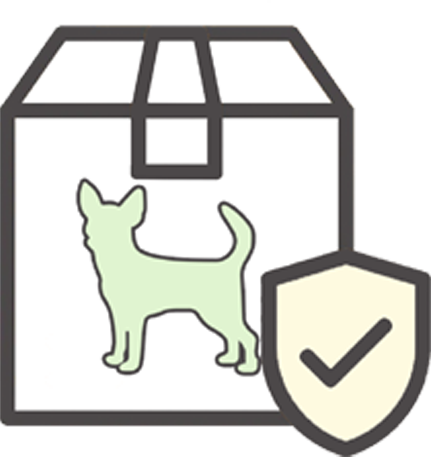The Fundamentals of a Doggie Diet
Updated On: Tuesday, November 12, 2024 11:57:43 AM America/Los_Angeles
As a dog parent, you want only the very best for your fur baby. But with so many options on the market today, it can be hard to know which food is the best for your dog. In this post, we discuss dog diets as well as how and when to make the change if needed.
Photo by Kabo
What should a dog’s diet consist of?
A dog’s diet is determined by multiple factors such as age, breed, and health, but there are some general nutrients that all doggie diets should include: proteins, water, minerals, vitamins, fats, and carbohydrates. However, all of these nutrients should not be in even proportion and not all ingredients are made equal! For example, dogs are able to digest carbohydrates, but complex carbohydrates such as grains should be avoided. Examples of “safe” carbs are sweet potato, pumpkin, and butternut squash. It goes without saying that all dogs benefit from food that contains recognizable and minimally processed ingredients. If your budget allows, opt for foods that contain ingredients that are all natural and locally sourced.
When should a dog’s diet be changed?
There may be a number of reasons you’re thinking of switching up your dog’s food, including simply wanting a healthier diet for your pup. Some other common reasons you may have to change a dog’s diets are:
- Age: As your dog ages, you’ll have to adjust their diet to accommodate their changing bodies and metabolism.
- Illness: Many illnesses or ailments will require a diet change to alleviate symptoms related to your dog’s particular condition.
- Allergies: Food allergies are one of the most common reasons that people alter their dog’s diet. If you’ve eliminated exposure to other allergens such as fleas or pollen, you may have to work with your vet to see if your dog is allergic to any of the ingredients in their food.
- Obesity: A little pudge never hurt anybody. But if your dog’s obesity is making it difficult for your dog to move comfortably or is causing health problems, it’s time to make a change.
How do I change my dog’s diet?
Regardless of the reason, a change in diet is a big deal. Dogs are habitual creatures and meals are one of the most consistent parts of their routine. Any changes to your dog’s diet should be done slowly. The American Kennel Club recommends the following 7 day schedule:
- Day 1: 25% new diet and 75% old diet.
- Day 3: 50% new diet and 50% old diet.
- Day 5: 75% new diet and 25% old diet.
- Day 7: 100% new diet.
There are some things to be mindful of during this process. Every dog is different. The above schedule is just a guideline, and if you have a dog with a sensitive stomach or you want to be cautious, you should manage the transition accordingly. In addition, any diet change can result in an upset tummy, so it’s best to have an indoor dog bathroom like DoggieLawn on hand to make sure your dog has 24/7 access to a pet potty. If you are needing to change your pup’s diet because of an illness, be sure to do so under the guidance of your vet.


